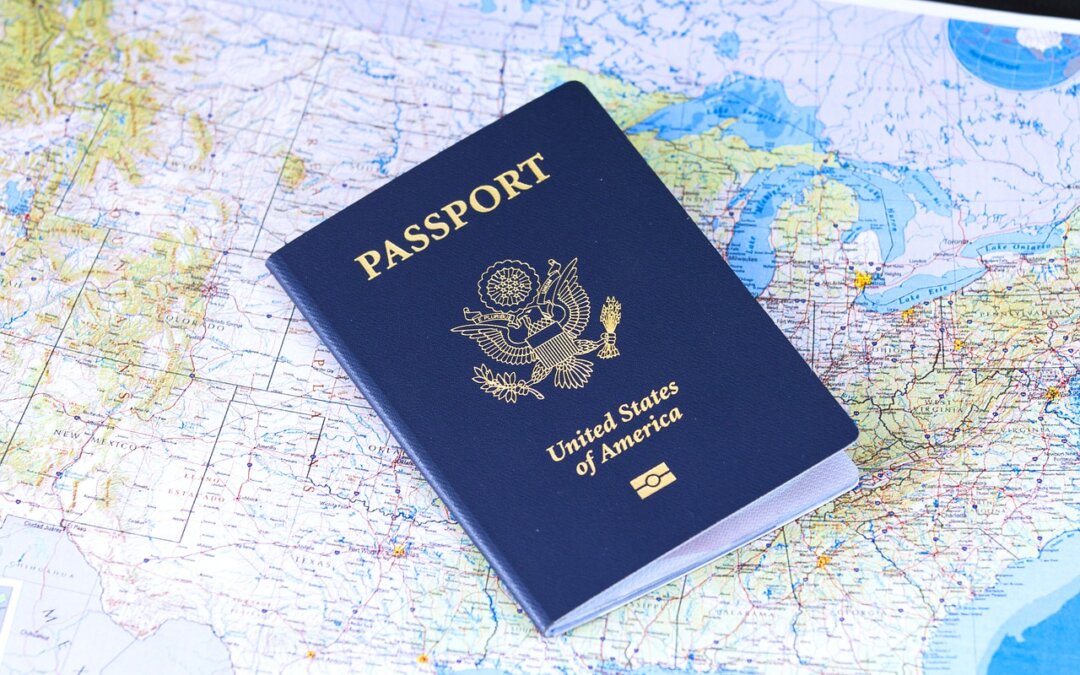Mistake 1: Overpacking or Underpacking
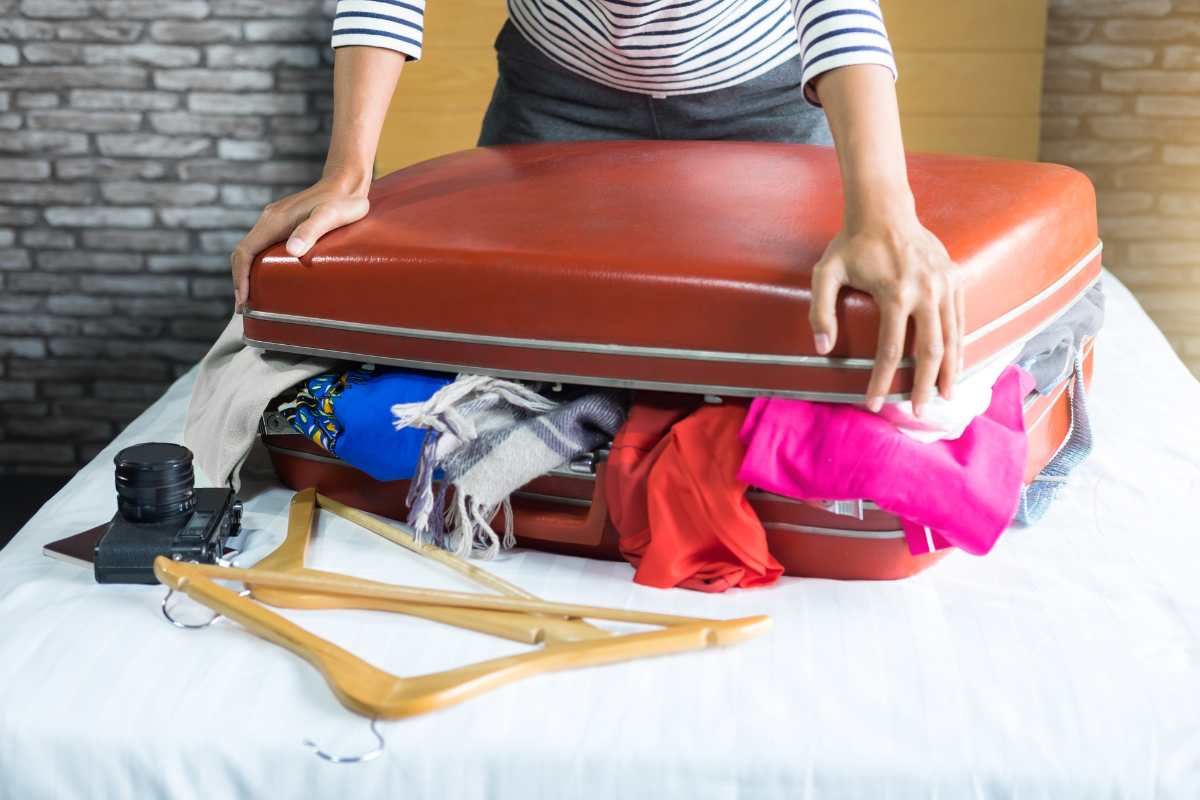
Finding the perfect balance between carrying essentials and avoiding excessive luggage can make or break your travel experience. Overpacking can lead to unnecessary stress, hefty baggage fees, and a cumbersome journey while underpacking might leave you scrambling for basics once you arrive.
Smart packing tips:
- Plan Ahead: Check the weather forecast and itinerary to pack appropriate clothing.
- Versatile Pieces: Opt for clothes that can be mixed and matched, saving space and adding variety.
- Travel-Sized Toiletries: Stick to travel-sized toiletries or plan to buy essentials at your destination.
- Tech Savvy: If you’re bringing gadgets, ensure you have the right adapters and chargers.
- Leave Room: Pack with a little extra space for souvenirs or items you might pick up along the way.
Packing thoughtfully not only lightens your load but also makes the entire trip more enjoyable and hassle-free.
Related:
How to Pack for Two Different Climates
Mistake 2: Ignoring Travel Insurance

Skipping travel insurance might seem like a way to cut costs, but it can leave you vulnerable to unexpected situations. In a post-pandemic world, comprehensive travel insurance is more essential than ever. It provides peace of mind and financial protection against unforeseen events, from trip cancellations to medical emergencies.
Types of coverage to consider:
- Trip Cancellation or Interruption: Covers non-refundable expenses if your trip is canceled or cut short due to covered reasons.
- Medical Coverage: Essential for covering medical emergencies, especially if you’re traveling abroad.
- Emergency Evacuation: Covers transportation costs to the nearest medical facility or back home in case of serious illness or injury.
- Lost or Delayed Luggage: Compensates for lost, stolen, or delayed baggage.
Investing in travel insurance ensures that you’re prepared for the unexpected, allowing you to focus on enjoying your trip without worrying about potential setbacks.
Related:
Why Travel Insurance is a Must
Mistake 3: Failing to Book in Advance
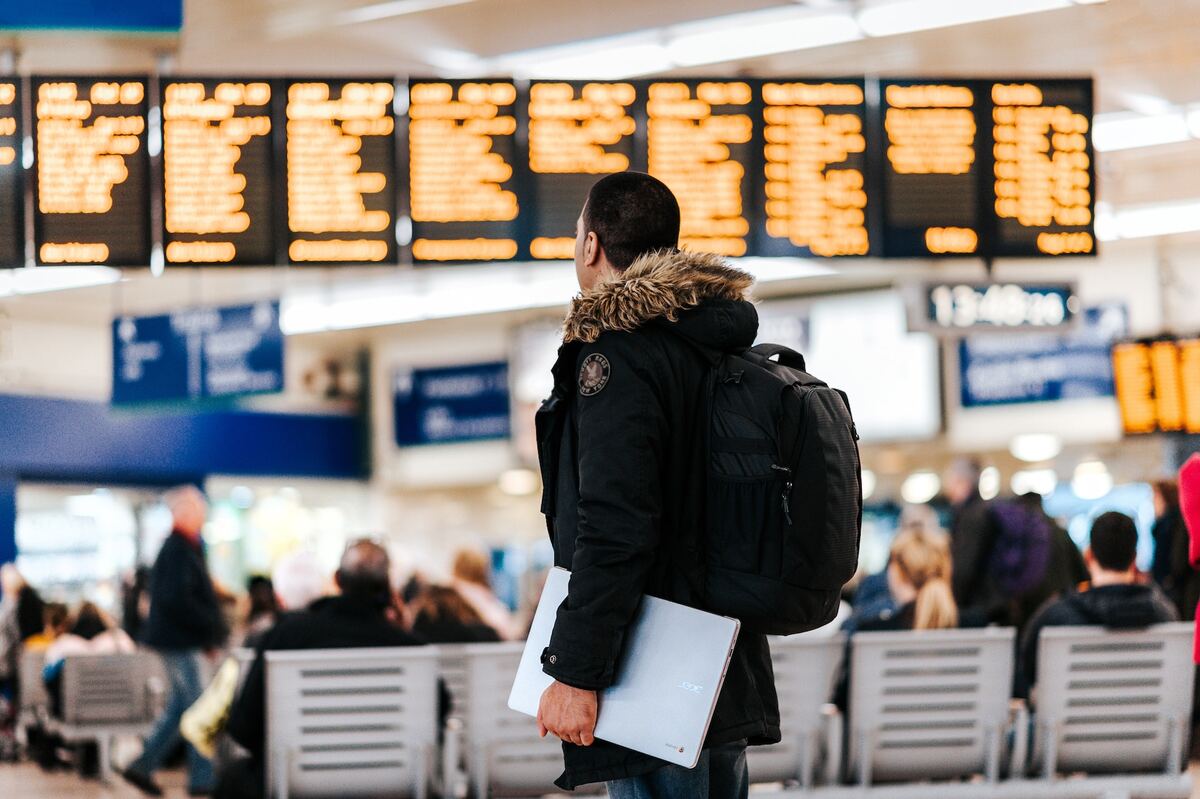
While the allure of spontaneous travel is undeniable, failing to book in advance often leads to higher costs and fewer choices. Last-minute bookings can result in inflated prices for flights, hotels, and popular activities, especially in peak travel seasons.
Why early booking matters:
- Cost Savings: Airlines and hotels typically offer better rates for early bookings, and you can take advantage of promotions or early bird discounts.
- Better Options: Booking ahead ensures you have access to a wider range of accommodations, seat selections, and activity slots, allowing you to tailor your trip to your preferences.
- Peace of Mind: Having your travel arrangements secured well in advance reduces the stress of planning, letting you focus on enjoying your trip.
Optimal booking times:
- Flights: Aim to book flights 1-3 months in advance for domestic trips and 2-6 months for international travel.
- Hotels: Booking 3-6 months ahead usually yields the best rates, especially for popular destinations.
- Activities: Secure spots for high-demand tours or experiences as soon as your travel dates are confirmed to avoid disappointment.
Planning ahead can save you from unnecessary expenses and ensure a smoother, more enjoyable journey.
Related:
Mistake 4: Relying Solely on Technology

In an era where smartphones and gadgets seem indispensable, it’s easy to rely entirely on technology for navigation, communication, and travel planning. However, this dependence can lead to trouble, especially in areas with limited connectivity or when devices fail unexpectedly.
Why over-reliance on technology is risky:
- Connectivity Issues: Remote destinations or certain areas might have poor internet access, leaving you stranded without digital maps or online bookings.
- Device Failures: Phones and gadgets can run out of battery or malfunction, disrupting your travel plans.
- Data Privacy Concerns: Constantly relying on public Wi-Fi networks can expose your personal information to cyber threats.
Backup plans to consider:
- Printed Maps and Itineraries: Carrying hard copies of maps, addresses, and itineraries ensures you’re never completely lost, even if your devices let you down.
- Physical Copies of Travel Documents: Keep printed copies of important documents like your passport, visas, and tickets in case digital versions become inaccessible.
- Local Guides and Manuals: Investing in a travel guidebook can provide invaluable information without the need for a power source.
Balancing technology with traditional methods not only safeguards your journey but also adds a layer of preparedness for the unexpected.
Mistake 5: Underestimating Jet Lag
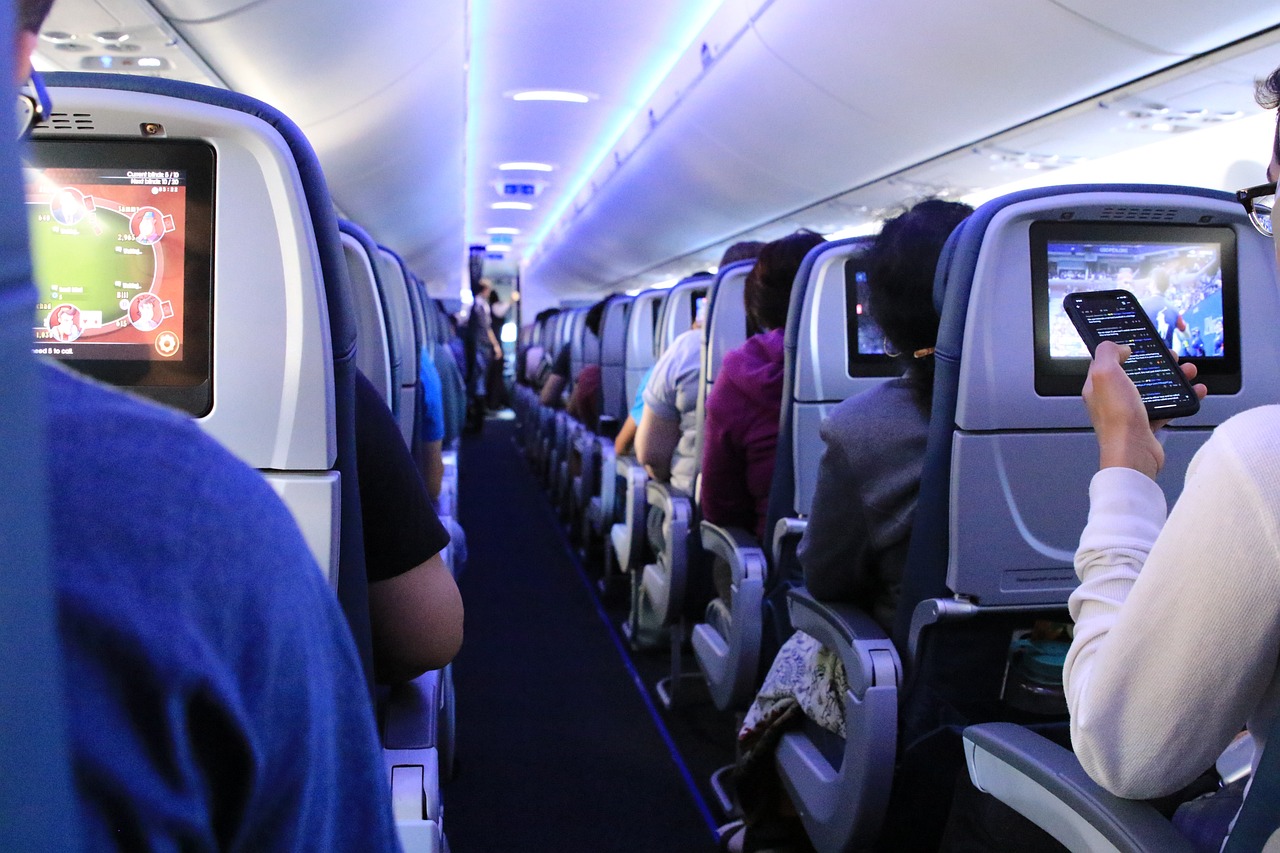
Jet lag can sneak up on even the most seasoned travelers, disrupting sleep patterns and energy levels, and potentially throwing off your entire trip.
Understanding jet lag:
- What it is: Jet lag occurs when your internal body clock is out of sync with the local time at your destination, usually due to crossing multiple time zones quickly.
- The impact: Symptoms can include fatigue, insomnia, irritability, and difficulty concentrating—none of which are conducive to enjoying your trip.
Strategies to minimize its effects:
- Adjust your schedule gradually: If possible, start shifting your sleep and meal times to match your destination a few days before you travel.
- Stay hydrated: Air travel can be dehydrating, which exacerbates the symptoms of jet lag. Drink plenty of water before, during, and after your flight.
- Get some sunlight: Exposure to natural light helps reset your internal clock. Spend time outside as soon as you arrive at your destination.
- Limit caffeine and alcohol: These can disrupt sleep and should be consumed in moderation, especially close to bedtime.
- Consider short naps: A 20-minute nap can help recharge your energy without interfering with nighttime sleep.
By preparing for and managing jet lag, you can maximize your time exploring and enjoying your destination.
Mistake 6: Not Researching Local Customs and Etiquette
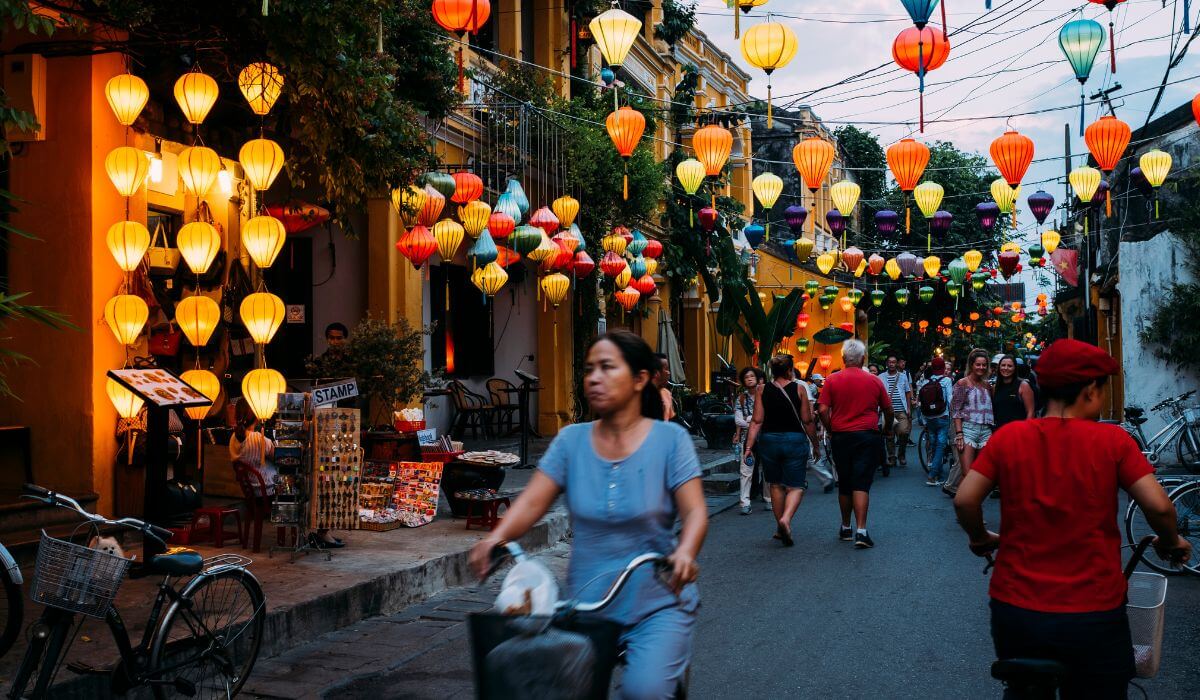
Traveling to new destinations is an exciting opportunity to immerse yourself in different cultures. However, failing to understand and respect local customs and etiquette can lead to awkward situations or even unintended offense.
Why understanding local customs matters:
- Respect for Local Traditions: Every culture has its unique set of norms and practices. Knowing these shows respect and helps you connect more authentically with locals.
- Avoiding Missteps: Simple gestures, dress codes, or dining etiquette can vary greatly across cultures. Awareness can prevent misunderstandings or uncomfortable moments.
- Enhancing Your Experience: Engaging with local customs enriches your travel experience, allowing you to appreciate the destination more deeply.
Tips for researching and respecting local traditions:
- Read Up Before You Go: Invest time in reading about the destination’s cultural practices. Travel guides, blogs, and online forums are great resources.
- Observe and Ask: Pay attention to local behavior and, when in doubt, politely ask locals or guides about proper conduct.
- Dress Appropriately: Research local dress codes, especially in religious or conservative areas, to ensure you’re dressed respectfully.
By making an effort to understand and respect local customs, you not only avoid potential faux pas but also show genuine appreciation for the culture you’re visiting.
Related:
Explore European Cities Like a Local
Mistake 7: Skipping Currency Conversion Research

Overlooking the local currency can lead to unnecessary financial mishaps, from unexpected fees to overspending. Ensuring you’re well-prepared with currency conversion knowledge can save both money and stress.
Why currency conversion research is crucial:
- Avoiding Overcharges: Without a good grasp of the local currency, it’s easy to misjudge prices or fall victim to unfavorable exchange rates.
- Budgeting Wisely: Knowing the approximate value of your money helps in setting a realistic budget and prevents overspending.
- Minimizing Fees: Understanding exchange rates and conversion fees can help you choose the best methods for currency exchange, whether it’s through local ATMs, credit cards, or currency exchange offices.
Tips for mastering currency conversion:
- Use Reliable Tools: Apps like XE or OANDA offer real-time currency conversion and help you make quick calculations on the go.
- Plan Ahead: Budget your daily expenses in advance to have a clearer picture of your spending limits.
- Know Your Options: Research whether to exchange money before traveling or upon arrival, and understand the pros and cons of each method, including using ATMs or credit cards abroad.
Being proactive about currency conversion not only keeps your finances in check but also allows you to focus more on enjoying your travels without the worry of overspending.
Mistake 8: Overlooking Health Precautions

Neglecting health preparations can turn an otherwise wonderful trip into a stressful experience. Prioritizing your health ensures you’re ready for whatever comes your way while traveling.
Why health preparedness matters:
- Vaccinations: Depending on your destination, certain vaccinations may be required or recommended. Ensuring you’re up to date protects not just yourself but also the local community.
- Local Healthcare Access: Knowing the availability and quality of healthcare facilities at your destination is crucial. It’s better to be informed about where to go in case of an emergency than to scramble when the need arises.
Tips for staying healthy on the go:
- Travel Health Kit: Pack essentials like prescription medications, basic first-aid supplies, hand sanitizer, and any specific items you might need based on your destination.
- Stay Informed: Check health advisories for your destination and adhere to any local guidelines, especially in areas with ongoing health concerns.
- Stay Hydrated and Rested: Long travel days can take a toll on your body. Make sure to drink plenty of water and get adequate rest to keep your immune system strong.
By taking health precautions seriously, you can focus more on enjoying your travels and less on potential health issues.
By planning thoughtfully and staying informed, you’ll be able to truly immerse yourself in the adventure, leaving the stress behind. And if you’d like an even more seamless experience, I’m here to help. As your personal travel advisor, I’ll take care of the details, ensuring your next trip is as stress-free and unforgettable as possible.

